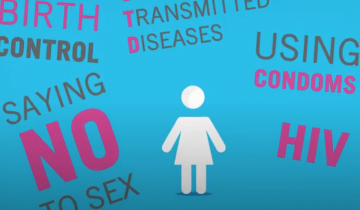This study highlights the importance of monitoring and managing chronic conditions in adults with cerebral palsy. It also provides important information that can help healthcare professionals better understand the health needs of this population.
Dr. Tom Novacheck, of Gillette Children's, describes the characteristics of the 4 types of unilateral, otherwise known as hemiplegic gait, and how the use of clinical instrumented gait analysis can help with treatment decision making.
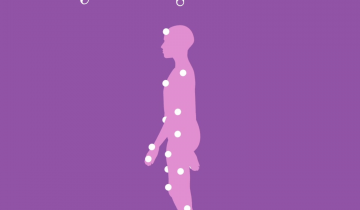
Dr. Tom Novacheck, Gillette Children's, describes what to look for in each of the 4 different gait patterns seen for those with bilateral cerebral palsy and considerations for each type.
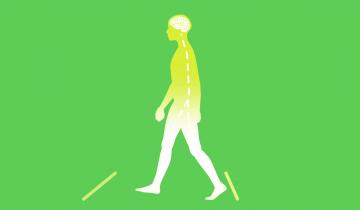
Understanding different gait patterns is important because it can determine what interventions will potentially be the most effective.

This webinar is with Ketrina Hazell, Ms. Wheelchair 2018, a young woman with cerebral palsy and Debbie Fink, Vice President of Education and Inclusion at the Cerebral Palsy Foundation, overseeing its flagship “Just Say Hi” program. This webinar is about Ketrina's lived experience in the school system and community and what worked or didn't work as she was growing up.
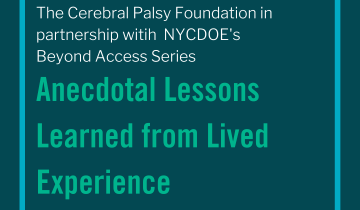
This webinar with Rachel Byrne, Ashley Harris Whaley and Debbie Fink, focusses on the shifting attitudes towards disabled individuals and authentic representation in media, social media and more.
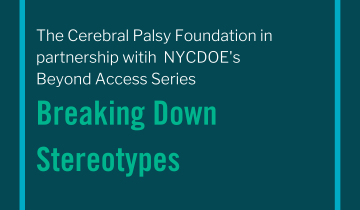
This webinar with Rachel Byrne, Executive Director of CPF, Ashley Harris Whaley, Director of Communities and Engagement at CPF and individual with with CP, and Debbie Fink, Vice President of Education and Inclusion at the Cerebral Palsy Foundation, overseeing its flagship “Just Say Hi” program, focusses on concepts and definitions addressing disability and how language has evolved.
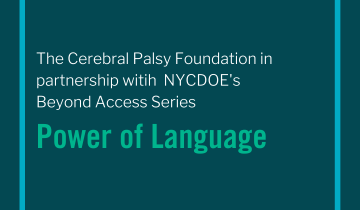
This webinar, with Ashley Harris Whaley, Director of Communities and Engagement, Rachel Byrne, Executive Director of CPF, and Debbie Fink, Vice President of Education and Inclusion at the Cerebral Palsy Foundation, overseeing its flagship “Just Say Hi” program, focusses on the terms "ableism" and "allyship" and ways to facilitate making connections in the schools and communities.
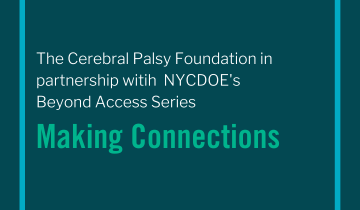
This webinar with Rachel Byrne, Executive Director of Cerebral Palsy Foundation, Ashley Harris Whaley, Director of Communities and Engagement, and Debbie Fink, Vice President of Education and Inclusion at the Cerebral Palsy Foundation, overseeing its flagship “Just Say Hi” program.This video series is a partnership with the New York City Department of Education and the Cerebral Palsy Foundation "Just Say Hi" Disability Education Curriculum. This series is meant to educate and empower parents of students with diverse needs.
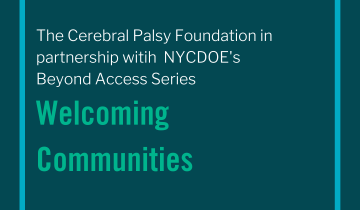
This webinar with Jennifer Lyman, Content Manager for CP Resource and parent of a teen son with with CP, and Debbie Fink, Vice President of Education and Inclusion at the Cerebral Palsy Foundation, overseeing its flagship “Just Say Hi” program. This webinar aims to help parents adapt and support academic success and participation at school and in the community.
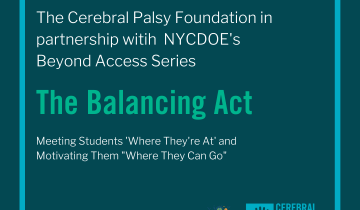
This webinar with Ashley Harris Whaley, Director of Communities and Engagement, Rachel Byrne, Executive Director of CPF, and Debbie Fink, Vice President of Education and Inclusion at the Cerebral Palsy Foundation, overseeing its flagship “Just Say Hi” program. It It aims to provide an overview of disability history and laws.
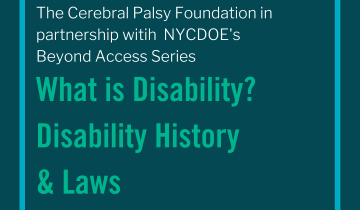
This webinar with Jacqueline Wentworth, Pediatric Occupational Therapist and individual with with CP, and Debbie Fink, Vice President of Education and Inclusion at the Cerebral Palsy Foundation, overseeing its flagship “Just Say Hi” program. This webinar aims to help parents adapt and support academic success at home.
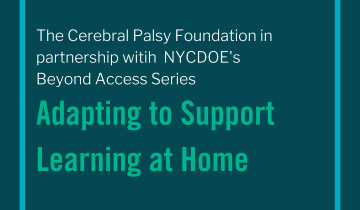
A person’s gait is dependent on the interaction between the nervous, musculoskeletal, and cardiorespiratory systems and has many influences.
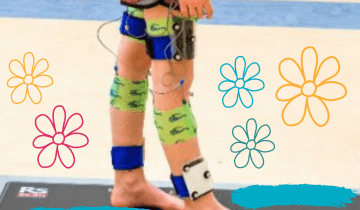
Learn about Ava's journey with gait analysis and surgery at Gillette Children's.
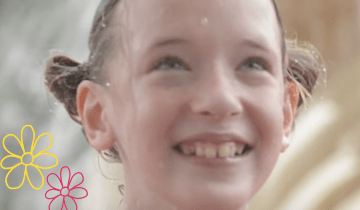
As a mother and a pediatrician, I’ve both felt the strain of pandemic parenting directly and indirectly. I’ve made decisions about my own family and sending our kids to daycare and school, and I’ve stayed up worrying about how parents are supposed to make these difficult choices with so little support.

All adolescents and young adults experience some peer pressure to engage in drinking or other risky behaviors. Adolescents with cerebral palsy engage in risky behaviors just like other teenagers. Some families find it helpful to sign what's called, a Contract for Life, or a Contract for Safety, with their child. The parent agrees not to yell in the moment and to have a conversation about it the next day. That's one way that adolescents and parents can create some zone of safety around drinking.
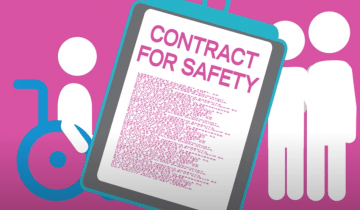
Up to 50% of adolescents with cerebral palsy have an intellectual disability, as well as a physical disability. Adolescents with intellectual disabilities still need sexual health education, they just need it in a way that's more individualized so that they can understand it and use it.
